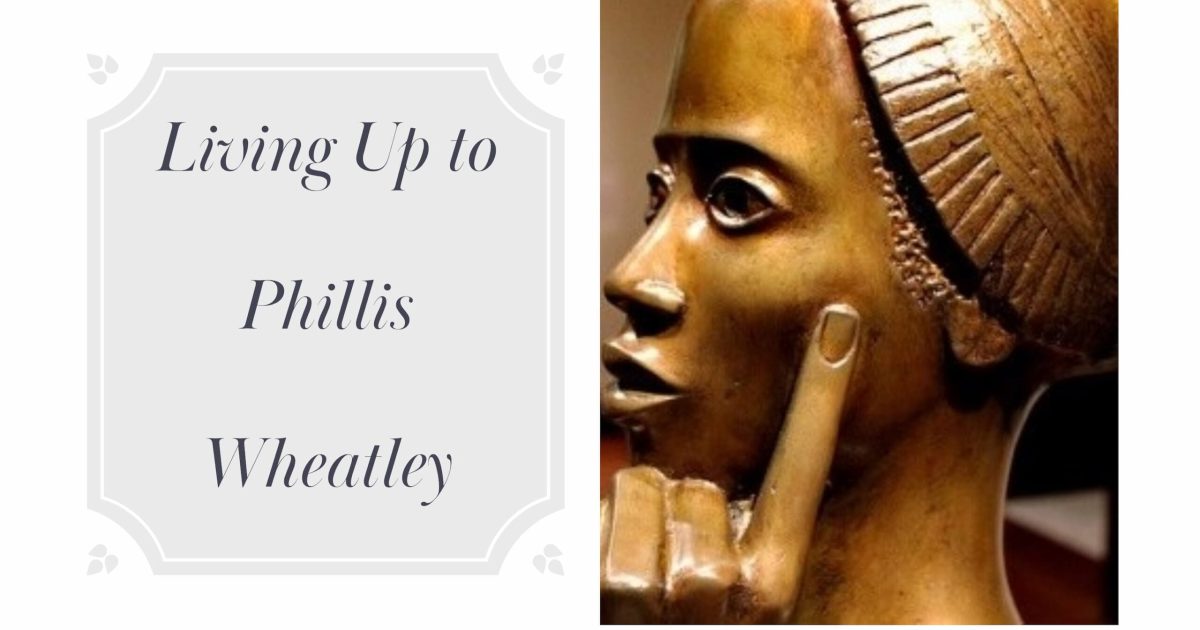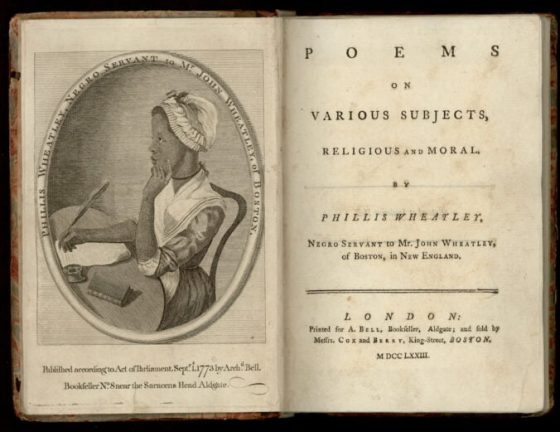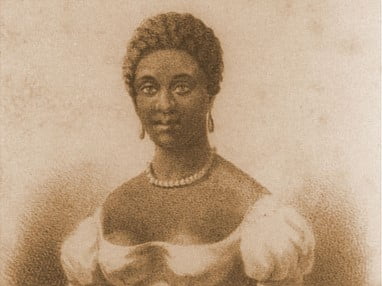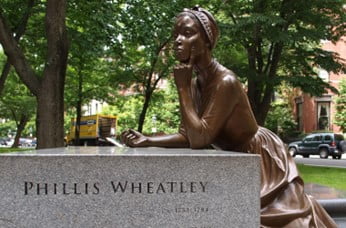
Disclosure: All products recommended in Living Up Blog have been selected by the founder and contributing authors. Some posts include...

In celebrating Black History Month, our goal is to recognize the many African Americans who have contributed greatly to American History. It’s a time to enhance our knowledge of the African Americans who helped shape this country and have been nearly missing from school history books. This post is about Phillis Wheatley is my first choice. A woman who overcame several obstacles (to put it mildly) and became the first African American and one of the first Women in the United States to publish. I find that fascinating, and I would encourage everyone, especially school-age children to learn about her.
Phillis Wheatley, born in West Africa around 1753 (Gambia or Senegal) and enslaved in Boston at the age of seven, stands as an emblematic figure in African American history. Her remarkable journey from an enslaved child to a lauded poet is not just a personal triumph but a beacon of hope and intellectual prowess within a system designed to dehumanize and silence African Americans. Her significance in African American history is multifaceted, stemming from her accomplishments in literature, her challenges to contemporary norms, and her role in the abolitionist movement, which is why she is celebrated in Black History Month.
There is a very subjective line in understanding a person and the reason for their actions. Fellow slaves criticized Ms. Phillis Wheatley because they expected her to take a decisive role against slavery and condemn white Americans. She was a very religious person, found the philosophy of religion more empowering than anything else, and her skill in writing was honed in poetry, which was a more subtle topic for a woman and a slave to write and publish at a time when both women and people of color were heavily oppressed. A slave woman was at a higher risk of being targeted and worse.

Wheatley’s literary gift was recognized and nurtured by the Wheatley family, who enslaved her, but also provided her with an education uncommon for girls of any race in colonial America. By the age of 12, she was reading Greek and Latin classics.
At age 14, she wrote two poems demonstrating her skills and understanding of the world and the universe as she saw it. According to the Phillis Wheatley Historical Society, she wrote “An Address to the Atheist” and “An Address to the Deist” urging both deists and atheists to believe there is a God, creator of the universe.
At 20, she became the first African American and one of the first women to publish a book of poetry in America, “Poems on Various Subjects, Religious and Moral” in 1773, having to prove in court that she was the author. This publication challenged prevailing notions of African and female intellectual inferiority, demonstrating not only her exceptional talent but also the potential of African Americans when given access to education and opportunity. It also highlights the inferior mentality of the time.
Her work is worthy of being studies during Black History Month, to understand how often her work interwove themes of freedom, religion, and identity, subtly critiquing the institution of slavery and the treatment of Africans in the American colonies. Wheatley’s correspondence with national and international public figures, including George Washington, further elevated her status and the cause for African American freedom and equality.

Phillis Wheatley’s legacy transcends her poetry. She laid the groundwork for future generations of African American writers and intellectuals to express their thoughts, fight for their rights, and contribute to the cultural and political life of America.
Her life and work serve as early evidence of the intellectual contributions African Americans could make when afforded the humanity and rights so long denied to them. The writings in Latin and Greek depict societies that have always had the same problems she saw in her time.
Two hundred years later, our society’s mental thinking has changed entirely, and today, we expect women of all colors to be respected, celebrated, and given the education and living standards that were a privilege during the time in which Phillis was growing up. In celebrating Wheatley during Black History Month, history acknowledges the profound impact of African American voices in shaping the nation’s heritage and consciousness. It also helps us recognize that many of the struggles she underwent during her life are, sadly, still a part of life for other women and girls around the world.
This knowledge should enforce our commitment to continue to improve our world using whatever creative methods we deem our strength. Phillis did just that, using poetry and inspiring us to keep up the fight against oppression. Her impact is admirably complex, as Professor Waldstreicher said when interviewed by The City University of New York (CUNY) when he explains her strategy in writing that those who expected her just to be “out there saying slavery is terrible… have tended to underrate just how impossible it would have been for her to say certain kinds of things directly…. And they’ve not really paid attention to the arguments that she’s intervening in.” (CUNY, 2023).

Sources:
CNN Staff. (1 February 2019). Meet the man who created Black History Month. A version of this article was originally published in 2007.
Georgievska, Marija. (16 March 2017). Phillis Wheatley: the first published African-American female poet. The Vintage News.
Phillis Wheatley Historical Society. Contribution to History and Literature. Posted in Featured, Legacy, Works.
Same Passage. Phillis Wheatley. Image.
Studies Weekly. (22 February 2023). 20 Black Women Who Made History.
Schuessler, Jennifer. (2 March 2023) A Fresh Look at a Pioneering Black Voice of Revolutionary America. Image from The New York Times. “The frontispiece and title page of Phillis Wheatley’s “Poems on Various Subjects, Religious and Moral,” published in 1773.Credit…Collection of the Massachusetts Historical Society.”
CUNY. (6 March 2023). Professor’s Phillis Wheatley Biography Shows the Poet as Strategic and Complex.
Quotes. Phillis Wheatley Historical Society.

But say, ye Muses, why this partial grace,
To one alone of Afric’s sable race;
From age to age transmitting thus his name
With the finest glory in the rolls of fame?
Thy virtues, great Maecenas! shall be sung
In praise of him, from whom those virtues sprung.
– Phillis Wheatley, To Maecenas in Poems on Various Subjects, Religious and Moral.

Disclosure: All products recommended in Living Up Blog have been selected by the founder and contributing authors. Some posts include...

Disclosure: All products recommended in Living Up Blog have been selected by the founder and contributing authors. Some posts include...

Indian spices and culinary history dates back millennia, used both dried and fresh produce unique dishes, but it's hard to...

Diwali, the Festival of Lights, is a significant Hindu celebration symbolizing the triumph of light over darkness. Celebrated by Hindu...

Many of us love mushrooms and others just started noticing them. They gained the spotlight and surged in popularity, because...

Disclosure: All products recommended in Living Up Blog have been selected by the founder and contributing authors. Some posts include...

Disclosure: All products recommended in Living Up Blog have been selected by the founder and contributing authors. Some posts include...

Cooking with herbs and spices is the tool for chefs to create a symphony of flavors that dance on our...

Tzatziki is a creamy sauce that complements many Greek dishes, perfect for dipping, and for those with dietary concerns like...